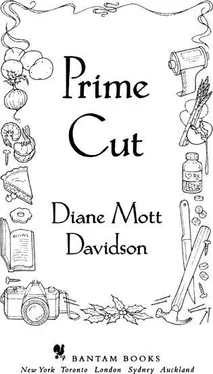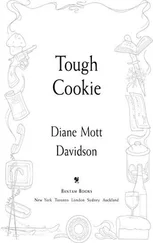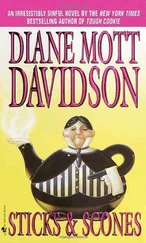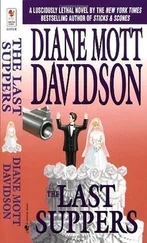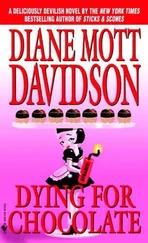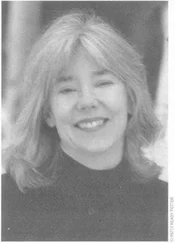“See you next week,” I began.
“How’s Marla holding up?” John Richard demanded, his face again flattened with a smirk.
I was noncommittal. The Jerk could use information in twisted and cruel ways, I had learned. “Fine. Why do you ask?”
He only laughed and hung up the phone.
Before leaving, I asked if I could see Cameron Burr. The desk sergeant told me Burr had just started a visit with his lawyer, and was unavailable. I scribbled a note to be delivered to Cameron, with our phone number and begging him to call. But I knew he wouldn’t. Suspended or no, Tom represented the forces that had put Cameron behind bars; Cameron’s lawyer would tell him not to contact us.
When we started back up the mountain, the air was warm, the sky increasingly hazy. I rolled down the window. John Richard’s manner at the end of our visit still rankled.
“Does your dad know that Marla is being audited?” I asked my son.
Arch looked out the window. “I guess.”
I had heard the entire content of John Richard’s last two visits with Arch; no mention had been made of Marla’s troubles with the IRS. As John Richard’s new factotum, Hugh Leland might be aware of what was going on. But how then would Arch know that his father was aware of the audit?
“What do you mean, you guess? Dad told you he knew Marla was going through this IRS thing?”
He hesitated. “Well, don’t tell Marla I told you, okay?”
I sighed. “He didn’t do anything illegal, did he?”
“Oh, no. But when Dad was having financial problems last spring, the HMO’s not paying him his money and stuff, he had this idea of how to make money. I don’t think he knows that I know. I was supposed to be watching TV in his condo, but there was nothing on. When I turned it off, I overheard Dad telling one of his friends about the IRS paying a big reward to whoever turns in a tax cheater. Dad told his friend that Marla was the richest person he knew, and he was going to squeal on her to the IRS. I just thought it was a joke.” He shook his head. “I feel bad telling you, because he’s my dad and all. But I love Marla. I know it’s been awfully hard on her. Sometimes I just think Dad gets sort of like, carried away.”
I didn’t say what I was thinking. It would have exposed Arch to very bad language.

The next morning, Julian, Tom, Arch, and I went to the early service at St. Luke’s Episcopal Church. I called Marla to see if she wanted us to come pick her up; she said she was having severe IRS-produced indigestion and couldn’t move from her bed. Given the circumstances, I decided against telling her about The Jerk’s hand in her current troubles. Julian had made some hazelnut-caramel rolls—Marla’s favorite—that he was eager to offer for tasting at the coffee hour. I didn’t tell her about them, either.
As the congregation began to read the Forty-sixth Psalm— God is my refuge and strength, a very present help in trouble —I realized that I craved very present help in a very big way . A friend of ours was in jail; Tom had been suspended; my business was in danger. Compounding these problems were the facts that our living-space was in an uproar and we were teetering on the brink of insolvency.
The Lord of hosts is with us; the God of Jacob is our stronghold . I prayed for Cameron and Barbara Burr. Without warning, I felt the weight of my ongoing resentment of our dead kitchen contractor. When people hurt you, it’s hard to let them go, no matter how they end up. But as my Sunday School class often reminded me, God will always take somebody in, even when they’re dead. Right, Mrs. Schulz?
I conjured up the bloated face of Gerald Eliot hanging between the sun room studs, and silently let him go.

“I’m sorry to put you through all this,” I told Tom that night as I pulled two loaves of homemade sandwich bread out of the oven. At my request, and in view of my continuing inability to talk to Cameron, Tom had spent an hour trying to find out about the evidence collected at Burr’s home. No one was available to chat about missing cookbooks, so Tom had vowed to go ask Boyd some questions the next day, suspension or no.
Instead of banging about in the wreckage we called our kitchen, Tom had thoughtfully spent the afternoon working on his plans in the basement so we could prepare for the morgue lunch the next day. With Julian’s help, I’d stewed a chicken, seared a London broil—both would go into the following days’ salads—made vichyssoise and a huge salad of barely steamed vegetables that would chill overnight and be lightly dressed with a raspberry vinaigrette the next morning. Tom received a test bowl of the delectable, chive-scented vichyssoise and pronounced it superb.
Before going to bed, I tried to check in with André. Pru’s caregiver said André had done a great deal of cooking this evening and was already asleep. She promised to ask him to call.

Monday morning dawned bright and cool. I chopped tarragon, celery, and pecans to combine with the moist, flavorful chicken pieces, then sliced the beef into thin wedges and mixed it with a spicy vinaigrette. At seven, Julian joined me and mixed flour with yeast and buttermilk to make hot rolls to go with the salads. Arch took off for another walk with Jake. Tom announced he was going for his breakfast with Boyd, where he hoped to hear about the latest Andy Fuller shenanigans. Julian and I were happily engaged in our work until just past ten o’clock, when the phone rang. I scooped it up and gave my business greeting.
“This is Dr. Sheila O’Connor, the coroner. Goldy—” Her voice cracked.
“I’m coming, I’m coming,” I replied calmly. At the last minute, clients often fear the caterer will forget to show up. “Don’t panic. I’m just putting it all together.”
She cleared her throat. “We have a body with only a tentative identification.”
I made wrapping motions to Julian and pointed to the salads on the counter. “So do you want me later—”
“This … man had no driver’s license, performed no military service,” Sheila said. After wrapping the salads, Julian pointed to the cardboard boxes; I nodded. “We don’t have any fingerprints. There aren’t any dental records.” I exhaled and watched Julian fold in the cardboard flaps. Sheila continued, “And his next of kin can’t do the ID we need. On the body, I mean. This man’s wife—widow—is blind.”
The floor under my feet shifted. I stumbled toward a chair and sat down. I whispered, “What?”
“Goldy, we need you here at the morgue. To identify the body,” Sheila repeated. “We believe the dead man’s your teacher, André Hibbard.”
Chapter 11
“Pru.” I was clutching the phone so hard my fingers hurt. “His wife. Where is she?”
“She felt she had to come down here, and she’s on her way. Her nurse is bringing her.” Sheila’s voice had become businesslike. “Goldy, I’m terribly sorry to have to ask you to help us. Nobody here seemed to know who else to call.”
“You’re not sure it’s André.”
“We’re pretty sure.” No hesitation. “The arriving crew found him in the Merciful Migrations cabin kitchen this morning. Looks as if he had a massive coronary.”
“A heart attack,” I said dully.
“We won’t know until the autopsy is done. But we can’t do what we need to do until a family member or someone who knew him well identifies the body.” She paused. “Please forgive me. Usually we use fingerprints or dental records or a relative, but none of those are available. His wife said to call you, that you lived nearby and used to work for him.”
Читать дальше
